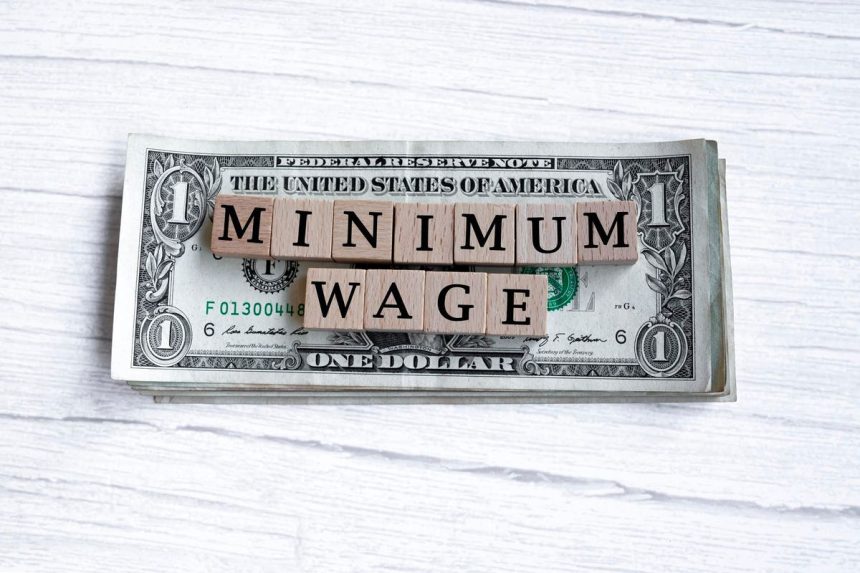Increases in the minimum wage are followed by a decrease in students enrolling in community college – particularly part-time students – according to a new National Bureau of Economic Research (NBER) working paper released this month.
The paper, Raising State Minimum Wages, Lowering Community College Enrollment, was authored by Diane Whitmore Schanzenbach (Northwestern University), Julia A. Turner (Northwestern University), and Sarah Turner (University of Virginia).
Method
Using enrollment data from the Integrated Post-secondary Education Data System (IPEDS), the researchers gathered enrollment and degree completion data at two-year and four-year institutions for the period of 1986-2019.
They then linked enrollment and completion results to state-level historical minimum wage changes based on sources such as state legislation and resolutions, federal reports from the Bureau of Labor Statistics, reports from state and local agencies, and communications from state labor departments.
Between the academic years of 1986 and 2019, the researchers documented nearly 400 minimum wage changes at the state level; of these, 170 involved an 8% increase or larger, which they used as their “relevant” threshold for testing the relationship between minimum wage increases and college enrollment.
Results
In the year following a relevant minimum wage increase, two-year college enrollment dropped by just over 4%. That decline did not change significantly over the subsequent four years; by year five, two-year enrollment remained down by about 4%.
In contrast, there was no significant change in four-year enrollment after a minimum wage increase.
The results remain basically the same when the sample is limited to public institutions only, which account for 88% of two-year enrollment and 68% of four-year enrollment.
At two-year colleges, part-time enrollment (about 60% of 2-year enrollment) dropped by 6% in the year following a relevant minimum wage increase, and remained at that level through the end of the sample period. Enrollment declines were smaller for full-time students (about 2%), but they also persisted throughout the studied period.
Although women make up about 60% of enrollment at public two-year institutions, there was no difference between men and women in how their enrollment changed in response to a minimum wage increase.
Overall, the impact of minimum wage increase on four-year enrollment were nonsignificant. One exception was a small, but statistically significant, increase in part-time enrollment at public, four- year institutions in the first few years after a minimum wage increase. However, that small bump dissipated after a few years.
The authors also examined the impact of minimum wage increase on degree completion at two- year colleges, looking separately at certificate programs with duration of less than one year, those with a duration of less than two years, and two-year associate (AA) degrees.
Despite the declines in enrollment at two-year colleges, the study found certificate and degree completions remained largely unchanged in response to a minimum wage increase. The one exception was that minimum wage increases were linked to a small, but significant, decrease in women earning AA degrees.
Although several factors have been suggested as reasons why community college enrollment has dropped so significantly (from 7.2 million students in 2010 to 4.7 million in 2020), this study suggests that meaningful increases in the minimum wage appear to be one contributor.
The implications of this influence need more study. What are the longer term consequences of students opting out of college because of the lure of jobs with increased wages? How big are the opportunity costs of electing to not attend college? And to what extent are employers making up for some of this forgone education with on-the-job training or employer-provided educational benefits?
Read the full article here









